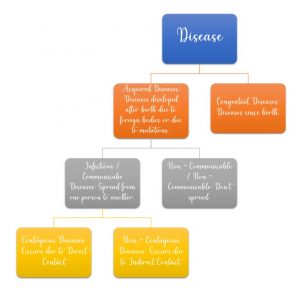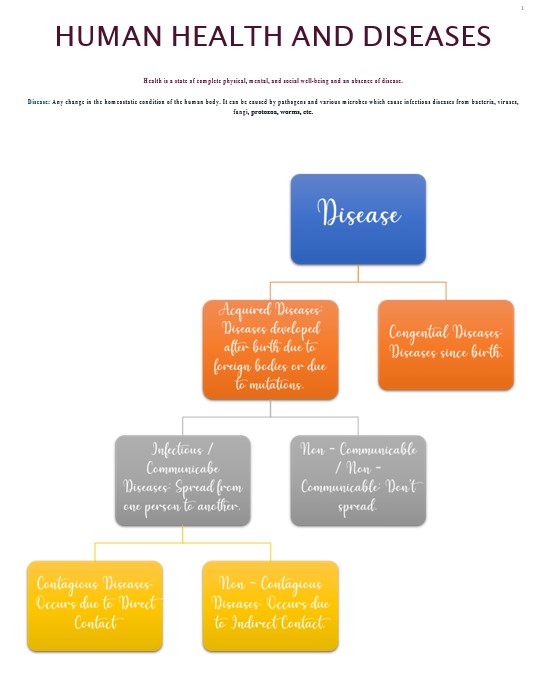Human Health and Diseases
Summary:
The note provides an overview of human health and diseases, starting with different types of diseases caused by bacteria, viruses, protozoans, and fungi. It then delves deeper into a specific disease caused by protozoans, namely malaria. The note highlights the importance of understanding the transmission and treatment of diseases.
The note then shifts focus towards secondary lymphoid organs and the different types of immunoglobulin, providing insight into the complexities of the human immune system. The concept of active and passive immunity is introduced, along with a brief discussion on autoimmunity.
In summary, the note provides a broad overview of the different types of diseases that can affect humans and the complexities of the human immune system. Understanding the transmission and treatment of diseases is essential for maintaining good health, while knowledge of secondary lymphoid organs and immunoglobulin types is crucial in understanding the body’s immune response.
Excerpt:
Human Health and Diseases
HUMAN HEALTH AND DISEASES
Health is a state of complete physical, mental, and social well-being and an absence of disease.
Disease: Any change in the homeostatic condition of the human body. It can be caused by pathogens and various microbes which cause infectious diseases from bacteria, viruses, fungi, protozoa, worms, etc.

Human Health and Diseases
BACTERIAL DISEASES:
| Typhoid | Cholera | Tetanus | Plague | Tuberculosis | Pneumonia | |
| Bacteria | Salmonella typhi | Vibrio cholera | Clostridium tetani | Yersinia pestis | Mycobacterium tuberculosis | Streptococcus Pneumoniae and Haemophilus influenzae |
| Mode of Transmission | Spread due to contaminated & non-hygienic environment
. The contaminated food and water, when used for domestic purposes, can cause typhoid. |
Caused due to intake of contaminated food & water. | – | Due to rats. | – | A healthy person acquires the infection by inhaling the droplets/aerosols released by an infected person or even by sharing glasses and utensils with an infected person. |
| Description | Immunity of the host body is not sufficient to prevent the action of pathogens.
A large number of bacteria have to be ingested by a healthy person to get infected. |
– | – | Mainly affects Lungs, Bones, Joints & Lymph Nodes. | Also called Koch disease. | Infects alveoli.
Alveoli get filled with Ruid leading to severe problems in respiration. |
| A small number of pathogenic ingestion can cause disease if the pathogen is resistant to the action of the host body. | ||||||


Reviews